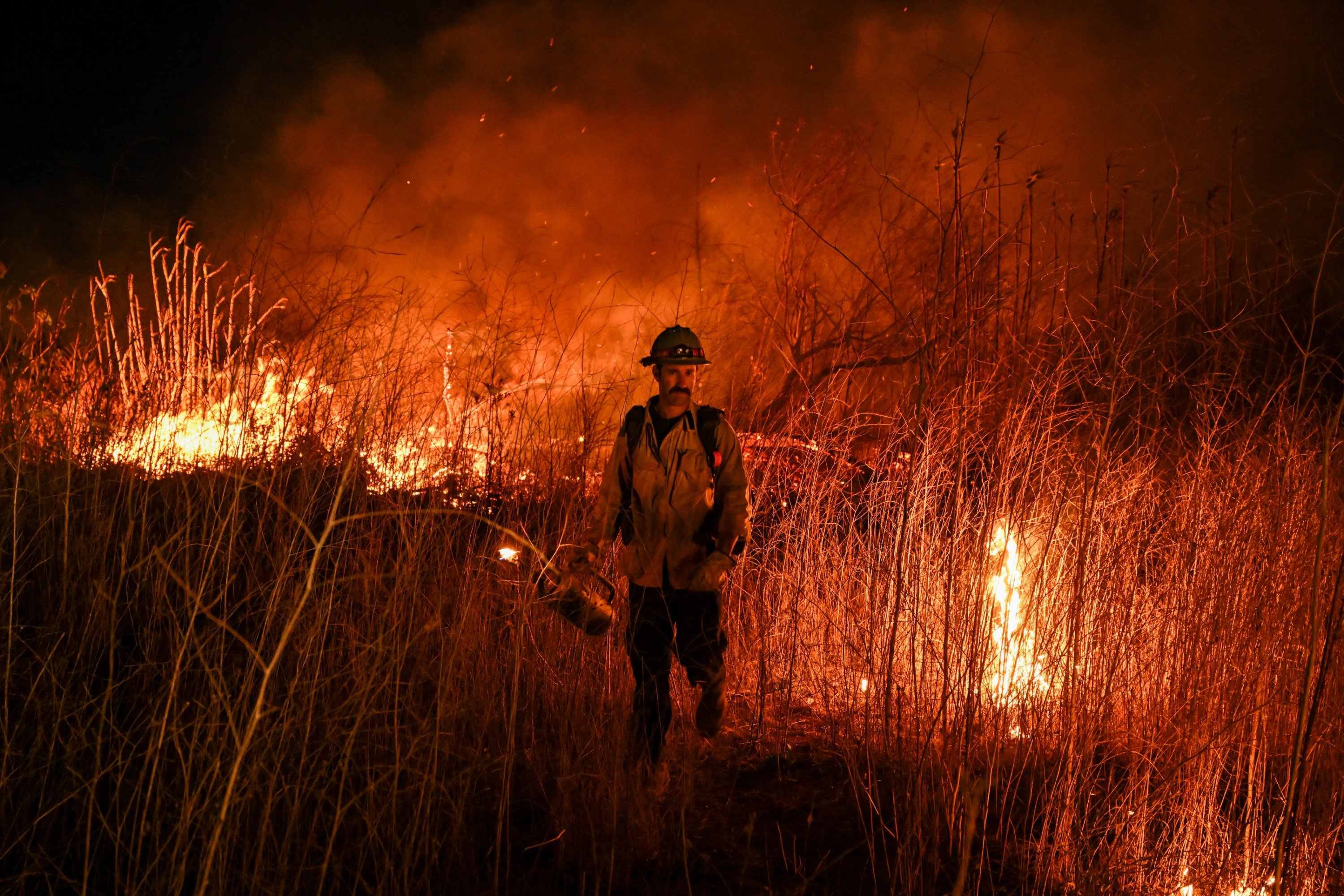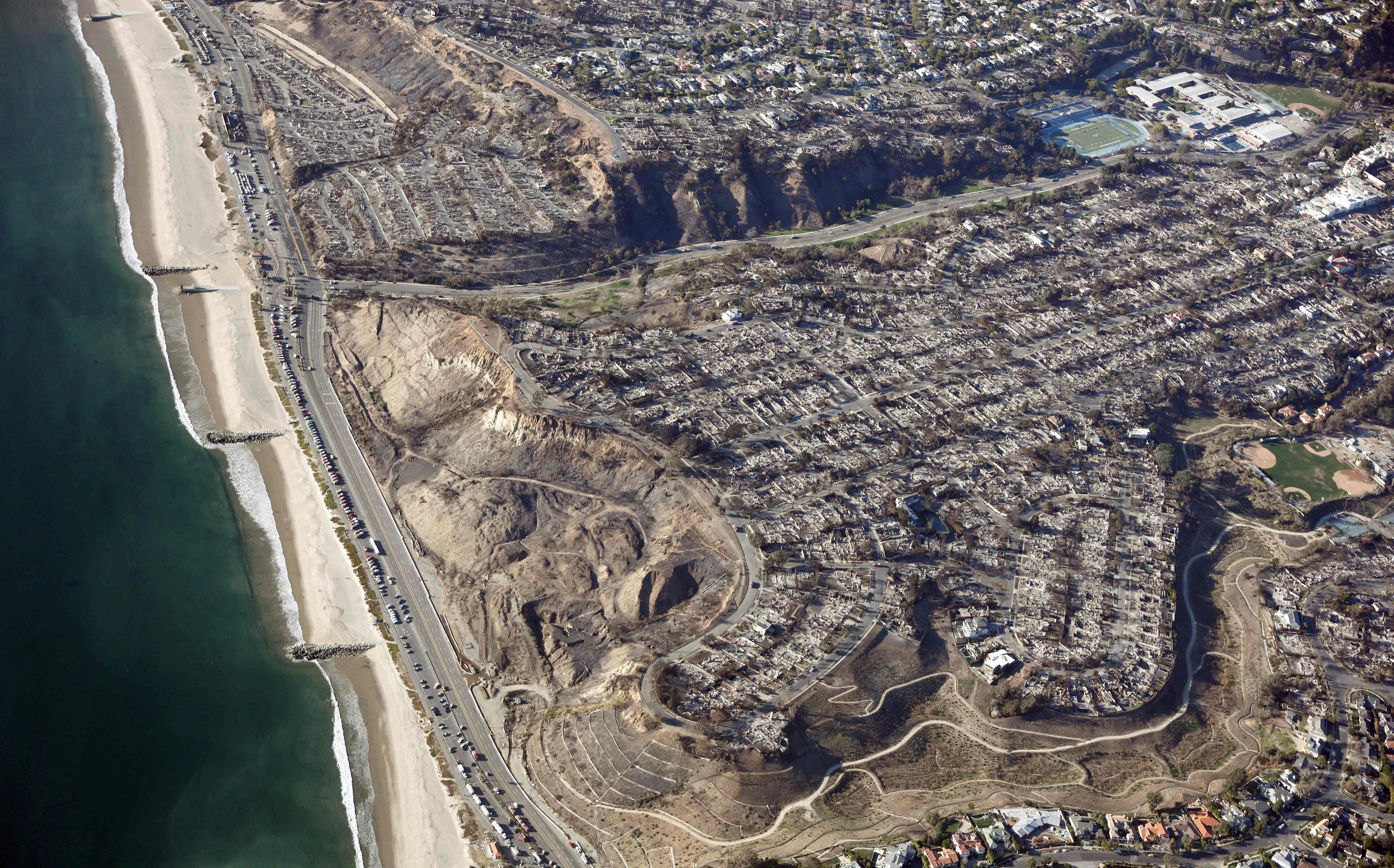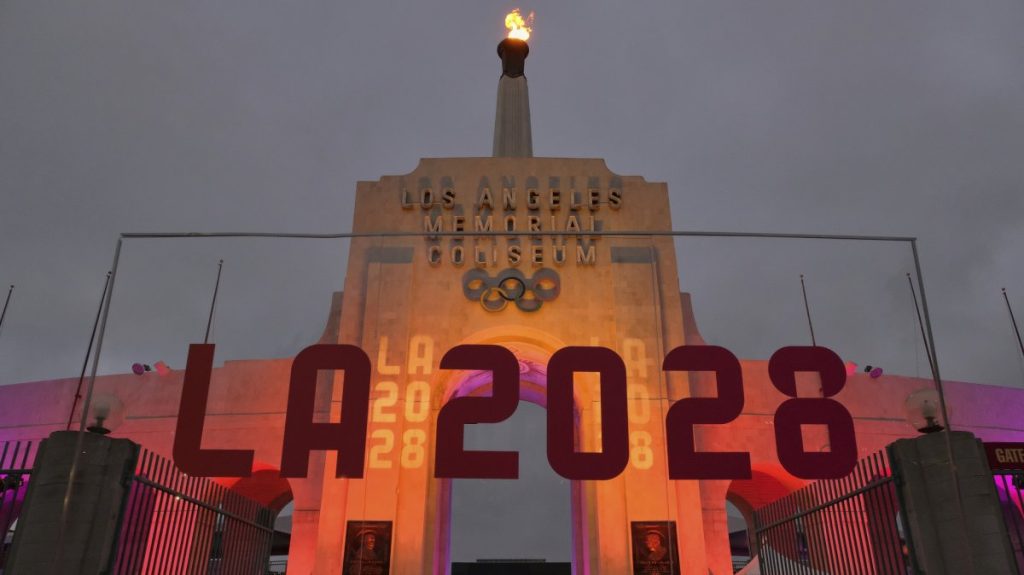The Los Angeles wildfires have raised concerns about the city’s ability to ensure safety and deliver a successful 2028 Olympics amid the ongoing disaster.
So far, none of the more than 80 venues due to stage Olympic competition in Los Angeles have been directly affected by the infernos that have left at least 24 people dead and reduced entire neighborhoods to smoldering ruins.
But experts say the ongoing disaster has underscored the challenges of staging the world’s largest sporting event in a region increasingly under threat of wildfires.
“The situation is clearly grave and given the prospect of significant climate change, you do have to wonder whether the current situation might be repeated, possibly even during the Games,” Simon Chadwick, professor of sport and geopolitical economy at Skema Business School in Paris told British daily The iPaper.
“This raises very serious questions, not least about insurance, and whether Los Angeles’ big-ticket 2028 attraction might be about to become an uninsurable mega-event,” he said.
While the flames that razed Pacific Palisades came uncomfortably close to the Riviera Country Club – which will host 2028’s Olympic golf tournament – the overwhelming majority of venues are situated outside what would be regarded as high-risk fire zones.
Historical data, meanwhile, indicates that the chances of a similar disaster erupting during the 2028 Olympics are highly unlikely.
Prior to last week, no fire in Los Angeles County had appeared on a list of the 20 most destructive fires in California history, according to statistics provided by CalFire, the state’s fire agency.
The 2028 Olympics will also be taking place in July, a time of year when there are no Santa Ana winds, the powerful seasonal gusts widely seen as the biggest factor behind the unprecedented scale and scope of last week’s carnage.
And Los Angeles has already staged the Olympics successfully on two occasions – in 1984 and 1932.

‘Lessons learned’
Bill Deverell, a professor of history at the University of Southern California, said the ongoing disaster could provide important lessons for 2028.
“Once this is over … there’s no question that we would expect that there would be lessons learned about ways we could presumably try to mitigate cataclysmic disasters like this,” Deverell told the Agence France-Presse (AFP).
Pennsylvania State University professor Mark Dyerson has floated the idea of the Olympics being moved to 2024 hosts Paris if LA was unable to deliver the games.
“They could go back to Paris,” the academic told the New York Post. “It would be unfortunate, but I’m sure they have some kind of committee – the IOC is a huge bureaucracy – that allegedly looks at contingencies.”
California Gov. Gavin Newsom, however, told NBC’s “Today” morning program that planning for the 2028 Olympics and the FIFA World Cup in 2026 – where eight matches take place in Los Angeles – was on track.
Newsom said the flurry of major sporting events in Los Angeles over the next few years – the city will also host the Super Bowl in 2027 – should be seen as an opportunity.

“My humble position, and it’s not just being naively optimistic, (is) that only reinforces the imperative (of) moving quickly, doing it in the spirit of collaboration and cooperation,” Newsom told NBC.
Conservative pundits however have wasted no time in demanding that Los Angeles be stripped of the Olympics.
“The Los Angeles Olympics should be canceled,” right-wing provocateur Charlie Kirk wrote on X last week.
“If you can’t fill a fire hydrant, you aren’t qualified to host the Olympics. Move them to Dallas, or Miami, so the world’s athletes can compete in a place capable of actually safely building and running something.”
USC expert Deverell however said there was little chance of the games being cancelled or moved because of the disaster
“The general assumption this means we should cancel the Olympics – I don’t buy that premise, and that’s not going to happen,” he said.
Los Angeles 2028 organizers did not immediately respond to requests for comment.


